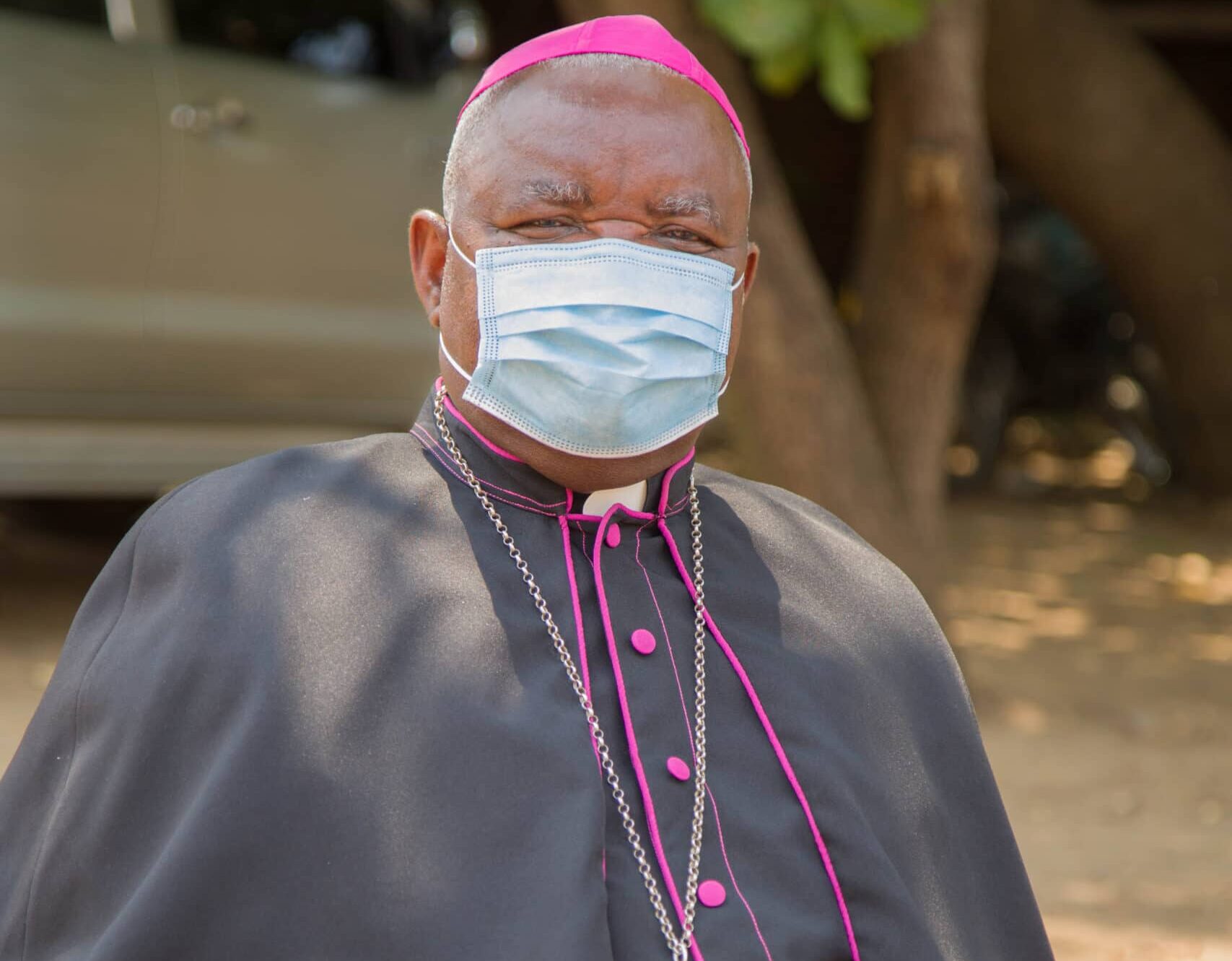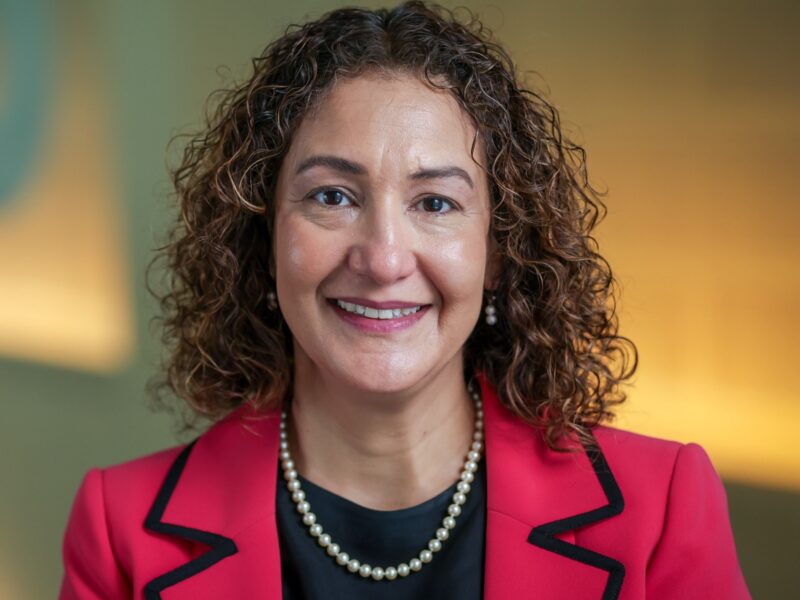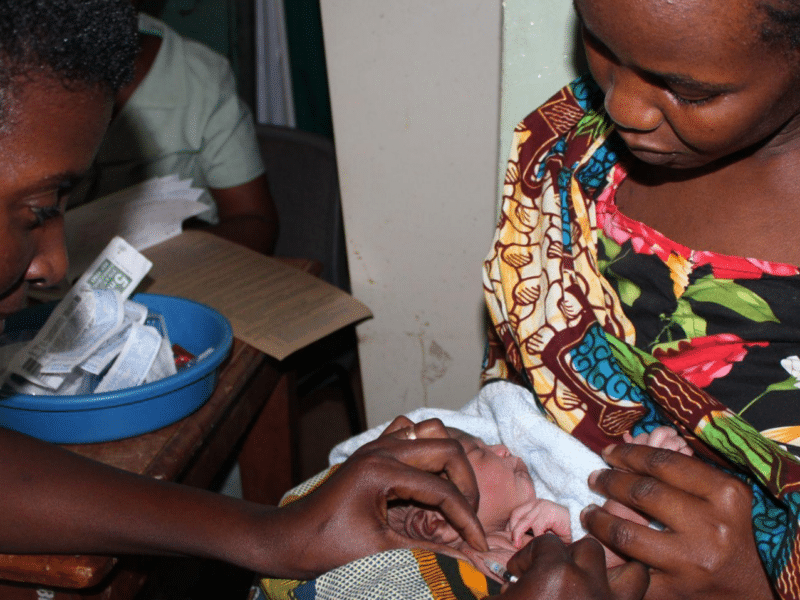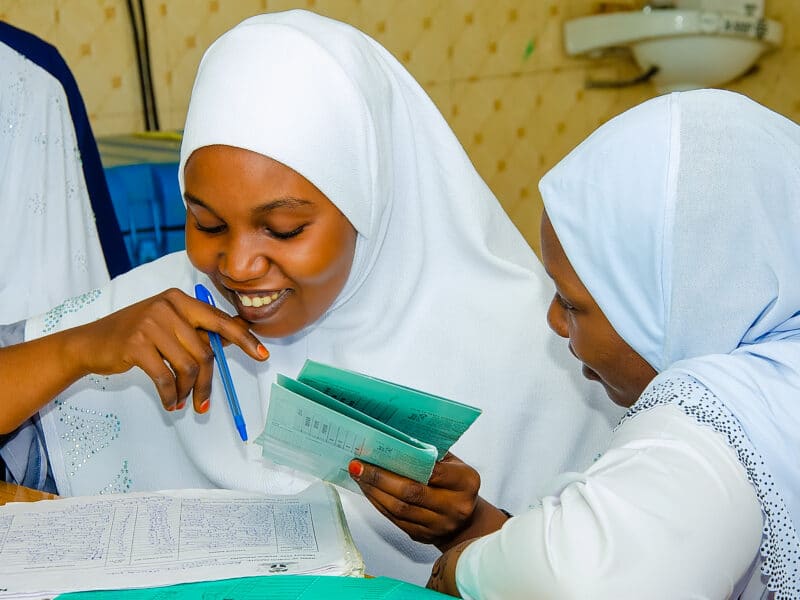A staggering amount of misinformation is circulating in Malawi about the safety and efficacy of COVID-19 vaccines.
Rampant rumors suggest that COVID-19 vaccines carry the mark of the devil or that they will change human DNA or are being used to de-populate Africa. Some claim that COVID-19 vaccines are not permissible under Islamic law. Taken together, conspiracy theories and vaccine misinformation are undermining the public health response, including vaccine uptake.
“We, as members of faith community, have also contributed to the low vaccine acceptance among our followers,” says Cecilia Mambo, 59, a faith leader in northern Malawi. “We have misinformed people and created fear among them.”
That is now changing.
Seeing a great need to share the latest information through trusted sources, the Johns Hopkins Center for Communication Programs-led Breakthrough ACTION project has been working in Malawi to engage religious leaders, educate them and help them use what they learn to help their congregants understand the value of vaccination and other COVID-prevention methods.
Along with Malawi, CCP is also working with religious leaders in Liberia, Nigeria and other countries to help bring an end to the COVID pandemic that is entering its third year.
“Religion is an important part of the social and cultural fabric of many communities where we work,” says CCP’s Vitima Ndovi, the senior program officer leading the COVID-19 work in Malawi. “As such, religious leaders have the power to inhibit or facilitate the adoption of COVID-19 vaccines. Given their high level of influence, interventions that engage clerics as change agents for shaping opinions and influencing behaviors related to COVID are crucial for increasing vaccine uptake.”
In Malawi, Breakthrough ACTION helped the Ministry of Health to provide orientations to 144 Christian and Muslim leaders (top leaders, women and youth) on COVID-19 prevention and vaccination. They equip religious leaders with activities and key talking points, which are regularly updated based on frequently asked questions and emerging issues. The leaders are implementing vaccine demand creation activities and sensitizing their community members on staying safe. Strategies discussed and deployed by the leaders include sharing messages at regular religious functions and through social media and existing face-to-face religious forums. Some have even arranged for COVID-19 tests and vaccine delivery right at the doorsteps of their churches or mosques.
In Nigeria, with a population of 216 million people, the government had a goal of vaccinating 50 percent of eligible people in every state by March 2022. According to the Nigerian government, as of mid-March, 16.4 percent of eligible Nigerians received at least one dose of vaccination and 9.8 percent are fully vaccinated. In Sokoto state, just 14 percent of those eligible have received a vaccine dose.
CCP has found that, in Sokoto state, the low uptake of the COVID-19 vaccine is largely due to mistrust of vaccines and the entire COVID-19 response given that the state has only officially recorded 817 cases and 28 deaths since the onset of the pandemic.
“There is particularly poor knowledge of the disease and the benefits of the vaccine among traditional and religious leaders as well as health care workers – leaving many people wondering whom to trust,” says Mustapha Sidi Attahiru, PhD, an Islamic scholar. Attahiru is a member of the Social Behavior Change Advocacy Core Group, an organization created by Breakthrough ACTION-Nigeria to involve religious and traditional leaders in behavior change activities.
Breakthrough ACTION-Nigeria also collaborated with state and local health officials to conduct a two-day forum with traditional and religious leaders, which focused on identifying the reasons for vaccine hesitancy, debunking rumors, providing accurate information to address information gaps and developing key messages they in turn could use within their communities.
Following a slow start to COVID-19 vaccine shipments in Liberia in 2021, vaccine availability quickly grew in the second half of the year and supply began to outpace demand. To increase demand for COVID-19 vaccines, Breakthrough ACTION Liberia, in collaboration with the Ministry of Health, established a vaccine ambassadors program. The vaccine ambassadors trained influential community members, such as chiefs, commissioners, religious leaders, facility and community-based health workers, and women and youth leaders, to be advocates for COVID-19 vaccination, and through them, aimed to ultimately increase COVID-19 vaccination in their respective communities.
Early results show that 86 vaccine ambassadors in Liberia have thus far conducted 425 community engagement events, which resulted in nearly 1,800 people getting vaccinated in three counties (Bomi, Grand Cape Mount and Maryland). Vaccine ambassadors have also participated in radio talk shows delivering vaccine promotion messages — including their own personal stories around getting vaccinated — to thousands more Liberians.
Words of advice from the Liberia team: “Do not assume that all of the people you identify to become vaccine ambassadors will want to receive the COVID-19 vaccine. Despite volunteering to take part in the program, Breakthrough ACTION still had to spend time building trust for the vaccine among some of the ambassadors. However, following a long dialogue, all ambassadors were vaccinated and became strong advocates for COVID-19 vaccines.”





